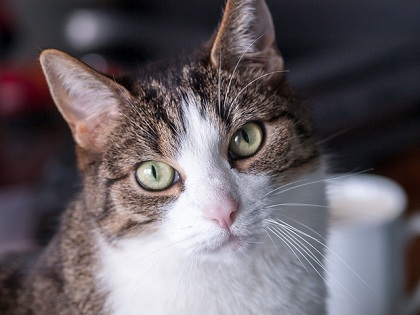Why Are Cats Finicky Eaters?
Why Are Cats Finicky Eaters?
Many cats may behave as finicky eaters from time to time. The first thing we should do when a cat starts behaving like picky eater is to check his health. A lack of appetite, lethargy, and vomiting are the common symptoms of various health issues in cats. When we exclude illness as the cause for his pickiness, the next thing is to determine his stress level. Namely, many cats can express a problem with food when stressed. The arrival of a new family member, such as a new pet or a new baby can put a lot of pressure on a cat that will reflect on its eating habits. Moving, an appearance of the intruder cat in the yard, or some other changes in his everyday functioning can greatly influence his picky behavior regarding food. To help a cat cope with stress, we may groom, pet and cuddle him more often. Maintaining a strong bond with a cat during the stressful time will help him feel more safe and secure. And his eating habits will turn back into normal. On the other hand, cats become finicky when they eat the same food for too long. For us, pet owners, it is a clear sign that we should make changes in his feeding. Some cats react with pickiness when they eat in a busy environment. Cats do not like crowds and noise, especially when eating. If a toddler moves around a cat and makes a lot of noise, the chances are that he will hang back from food. To learn more about the reasons why cats are finicky eaters, the article “Why Is My Cat… So Finicky About Food?” explains as follows.
Why Are Cats Finicky Eaters?
According to veterinary nutritionist Dr. Jennifer Larsen, DVM, PhD, DACVN, of the William R. Pritchard Veterinary Medical Teaching Hospital at the University of California, Davis, there are a few possible reasons for choosy kitties, including the way they were fed as kittens, bad associations with certain foods or cats just being cats.
“Cats that have been fed a variety of foods are more likely to try something new when offered,” Dr. Larsen says. Conversely, a cat repeatedly fed the same food will develop a preference for that food, which can be difficult to change.
And, sometimes, your kitty just may not be as hungry as you thought.
“The reputation for being finicky may be related to the fact that many cats, especially those who live indoors, have low energy requirements and don’t need to eat much food to maintain their weight,” Dr. Larsen says.
She points out, however, that some cats can lose their appetites when they don’t feel well, so it’s important to get your picky eater checked by a veterinarian. “Because the signs of illness in cats can be subtle,” Dr. Larsen says, “it can be difficult to determine which occurred first — reduced appetite and finickiness or illness.”
To cope better with this way of behaving, feline experts recommend exposing kittens to various types of food. It is important because it prepares them to develop the affinity towards several foods that will be useful when the cat becomes too picky. We will have more types of food to offer, which will alleviate the problem with pickiness.










